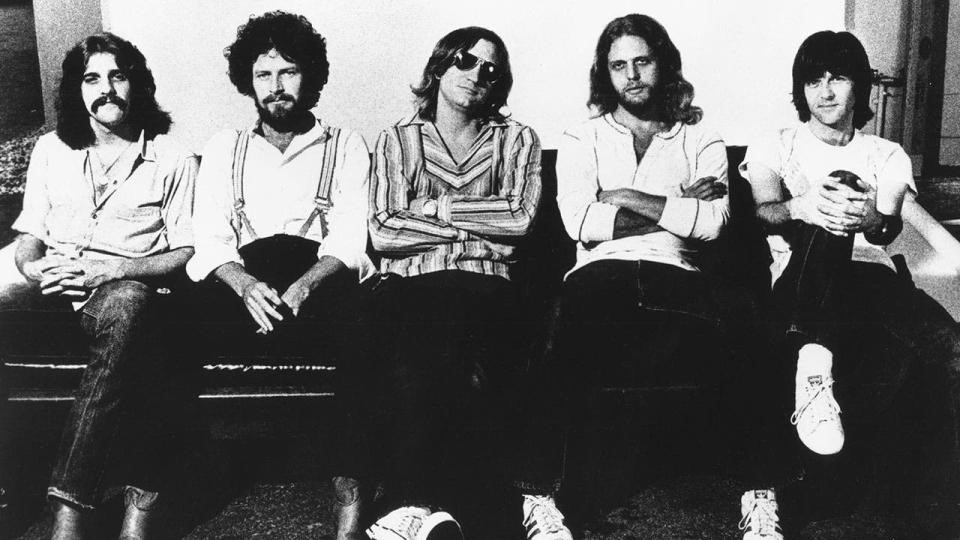
A Cautionary Anthem of Excess and Erosion in America’s Glittering Mirage
When “Life in the Fast Lane” surged onto the airwaves in 1977, it captured not only the pulse of a decadent era but also the sharpening edge beneath its glamor. As the third single from the Eagles’ multi-platinum album “Hotel California,” the track roared up to No. 11 on the Billboard Hot 100, sealing its place as one of the band’s most electrifying statements. It marked a turning point in their sonic evolution—a shift from rustic, harmony-laden country rock to a leaner, harder sound that mirrored the cocaine-slicked urgency of its subject matter.
This was no gentle California breeze. This was an asphalt inferno, a muscle-car confession rolling down Sunset Boulevard at 90 miles per hour.
At its core, “Life in the Fast Lane” is a morality tale disguised as a rock anthem. The track was born from a riff—fast, jagged, unmistakably dangerous—conjured almost accidentally by guitarist Joe Walsh during rehearsal. Its immediacy was undeniable; it cut like chrome through flesh. As the story goes, Glenn Frey, upon hearing Walsh unleash this now-iconic lick, immediately coined the phrase that would become its title: “That’s life in the fast lane.” What began as casual commentary morphed into a scathing portrait of high-speed self-destruction.
Lyrically, Frey and Don Henley crafted a story soaked in nihilism and material excess. The song follows an unnamed couple—restless, affluent, and addicted to thrill—spiraling through a life defined by indulgence and emptiness. “He was brutally handsome / And she was terminally pretty,” Henley sneers in the opening line, setting the tone with an icy clarity that evokes Bret Easton Ellis two decades early. It’s glamor through a cracked mirror: expensive drugs, sex without intimacy, speed without direction.
But what elevates “Life in the Fast Lane” beyond mere rock ‘n’ roll hedonism is its unflinching self-awareness. Henley’s vocals are simultaneously seductive and accusatory; he doesn’t just narrate this descent—he indicts it. The song becomes both participant and observer, seduced by the allure of fast living while being repulsed by its consequences. There’s no redemption arc here—only escalation until the inevitable crash: “He said, ‘Call the doctor.’ / I think I’m gonna crash.”
Musically, it is one of the Eagles’ tightest constructions—a propulsive rhythm section anchored by Don Felder’s searing guitar work and Walsh’s snarling leads. It’s lean and relentless, mirroring the heartbeat of an addict chasing his next high. Beneath the gloss lies meticulous craft: syncopated beats that mimic tension headaches; sharp chord changes that feel like emotional whiplash.
In retrospect, “Life in the Fast Lane” stands not just as a defining track on “Hotel California,” but as one of rock music’s most incisive dissections of American decadence. It captures a cultural moment when freedom curdled into excess—when ambition lost its soul to cocaine mirrors and velvet ropes.
It wasn’t just about moving fast—it was about not knowing how to stop.